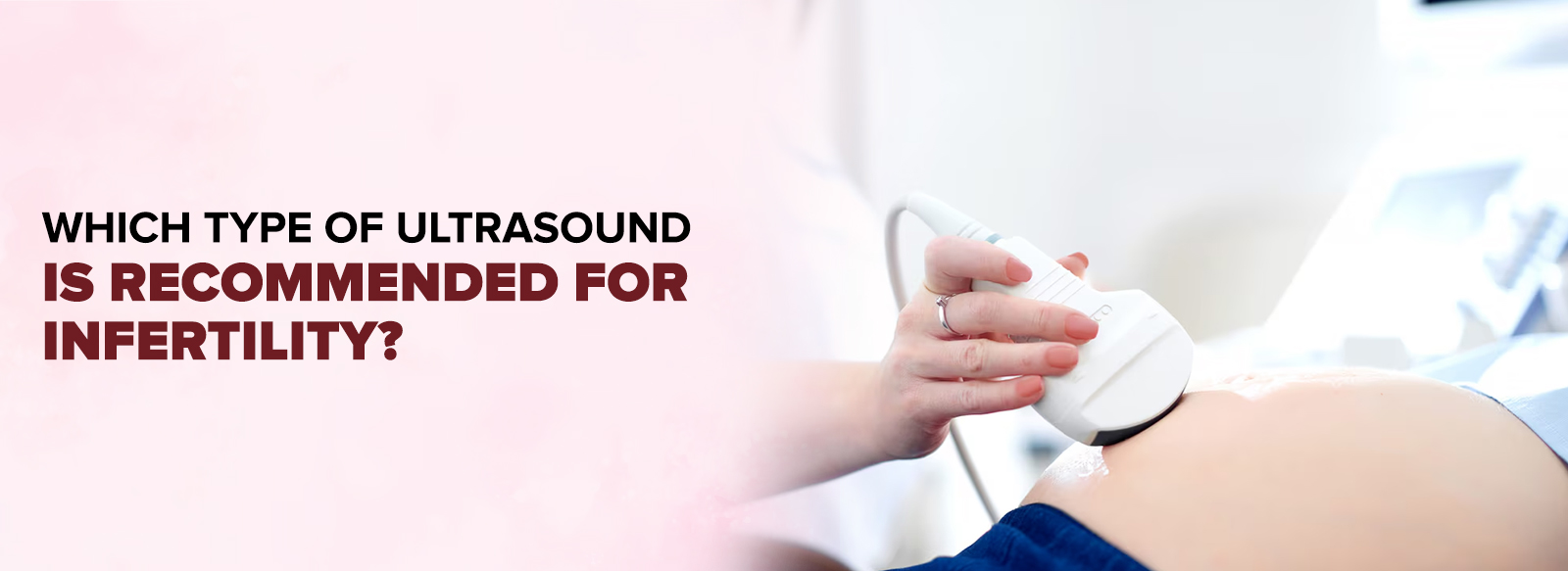Infertility is a complex medical condition affecting millions of individuals worldwide, characterized by the inability to conceive after a year or more of regular, unprotected intercourse. According to the World Health Organization (WHO), infertility affects about 8-12% of couples globally, with rates varying by region and age group.
Diagnostic tools play a crucial role in understanding the underlying causes of infertility and formulating effective treatment plans. Among these tools, ultrasound imaging is a valuable and commonly used method for assessing reproductive health. In this article, we’ll explore the importance of ultrasound in infertility treatment and the types of ultrasounds recommended for fertility issue evaluation.
Types of Ultrasound for Infertility:
In a single line – “Two types of ultrasounds are recommended for infertility: transabdominal ultrasound and pelvic ultrasound.”
Transabdominal ultrasound assesses uterine size, shape, myometrium, endometrium, and ovaries. Pelvic ultrasound evaluates the uterus, ovaries, and surrounding areas, aiding in identifying gynecological issues affecting fertility.
Transabdominal Ultrasound:
Transabdominal ultrasound is a non-invasive procedure where a transducer is placed on the abdomen to generate images of the pelvic organs. It is commonly used to assess uterine size, shape, and orientation, providing valuable information about the structural integrity of the uterus. This type of ultrasound also evaluates the myometrium (muscle layer of the uterus), endometrium (lining of the uterus), and ovaries, helping to detect abnormalities such as fibroids, polyps, or ovarian cysts that may impact fertility.
Pelvic Ultrasound:
A pelvic ultrasound is another non-invasive imaging technique used to assess the reproductive organs in both men and women. For women, this procedure involves placing the transducer into the vagina to obtain detailed images of the uterus, ovaries, and surrounding areas. It plays a crucial role in identifying gynecological issues that can affect fertility, such as polycystic ovary syndrome (PCOS), endometriosis, or structural abnormalities of the reproductive organs. This type of ultrasound is particularly useful in evaluating the thickness of the endometrium and the presence of ovarian cysts or follicles, which can impact fertility.
Primary Infertility Ultrasound:
An infertility ultrasound serves as a crucial initial test for individuals experiencing difficulty conceiving. It helps to verify the presence of the uterus and both ovaries, ensuring that these essential reproductive organs are present and structurally sound. This ultrasound also provides valuable information about the size, shape, and condition of the uterus and ovaries, which can indicate potential issues affecting fertility.
However, it’s important to note that ultrasound has limitations in detecting certain fertility-related issues, particularly concerning the fallopian tubes. Ultrasound imaging may not reliably visualize the fallopian tubes, which are crucial for the transport of eggs from the ovaries to the uterus.
To assess the patency of the fallopian tubes, additional tests such as a hysterosalpingogram (HSG) may be necessary. HSG involves the injection of a contrast dye into the uterus, which then flows through the fallopian tubes, allowing for visualization of any blockages or abnormalities.
Ultrasound for Fertility Assessment:
Here are two types of fertility assessments done using ultrasound –
Detailed Pelvic Scan:
A detailed pelvic ultrasound is a key component of fertility assessment, providing valuable insights into the health and function of the reproductive organs. During this procedure, a transducer is used to generate images of the uterus, ovaries, and surrounding pelvic structures. The scan can reveal abnormalities such as fibroids, polyps, or ovarian cysts that may impact fertility. It also allows for the evaluation of the endometrial lining and the detection of structural issues that could affect implantation or pregnancy.
Antral Follicle Count:
Antral follicle count (AFC) is a specific type of ultrasound used to assess ovarian reserve, which refers to the quantity and quality of a woman’s remaining eggs. This procedure involves counting the number of small follicles (fluid-filled sacs that contain immature eggs) in the ovaries at the beginning of the menstrual cycle. A low AFC may indicate a decrease in ovarian reserve, which can affect a woman’s ability to conceive naturally or respond to fertility treatments such as in vitro fertilization (IVF).
What is Best Time for Fertility Ultrasound Scan?
The timing of the ultrasound is crucial for obtaining optimal results. It is typically recommended to schedule the ultrasound between days 10-12 of a regular menstrual cycle. During this time, the endometrium is at an optimal thickness for implantation, and the ovaries are actively developing follicles, providing valuable information about ovarian function and egg production.
Ultrasound Limitations:
While ultrasound is a valuable tool in infertility diagnosis, it does have limitations. Ultrasound can detect structural abnormalities of the uterus and ovaries, such as fibroids, polyps, or ovarian cysts, which may impact fertility. However, ultrasound cannot detect certain causes of infertility, such as hormonal imbalances or issues with egg quality. In such cases, additional tests or evaluations may be necessary to determine the underlying cause of infertility.
Conclusion:
Ultrasound imaging plays a vital role in the diagnosis and treatment of infertility. An ultrasound scan provides valuable insights into the structure and function of the reproductive organs, helping to identify potential issues that may be impacting fertility. From transabdominal ultrasounds to detailed pelvic scans, these imaging techniques can provide valuable information to healthcare providers and individuals seeking to conceive.
If you or someone you know is struggling with infertility, it’s essential to seek professional medical advice and treatment. Fertility specialists, such as those at Vardaan Medical Center, can offer personalized care and treatment options to help you achieve your dream of starting a family.
Don’t lose hope. With the right medical guidance and support, many individuals can overcome infertility and fulfill their desire to become parents.
Call Vardaan Medical Center, the leading IVF center in Jalandhar and fertility clinic in Amritsar, to schedule a consultation and take the first step towards building your family.


